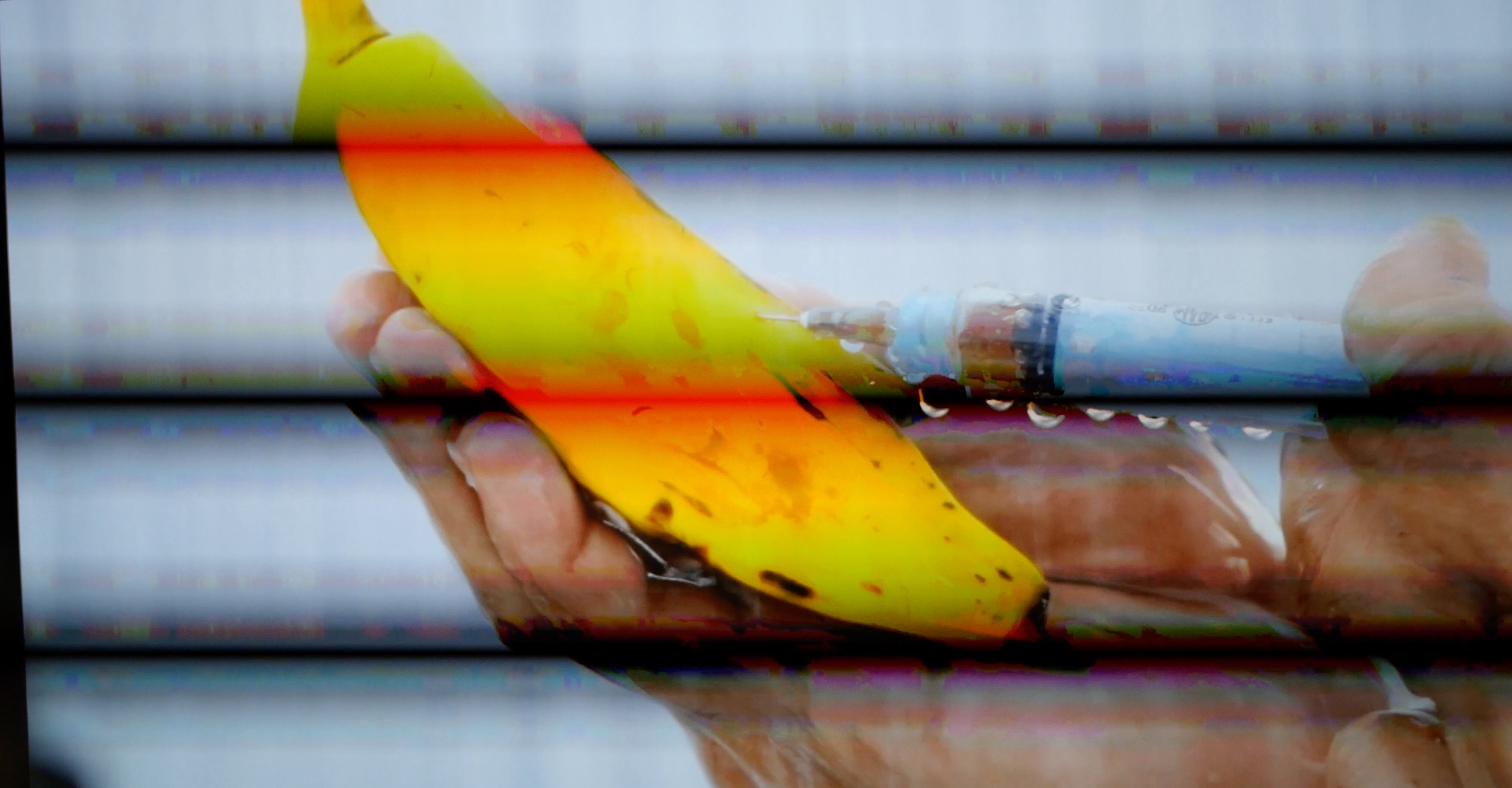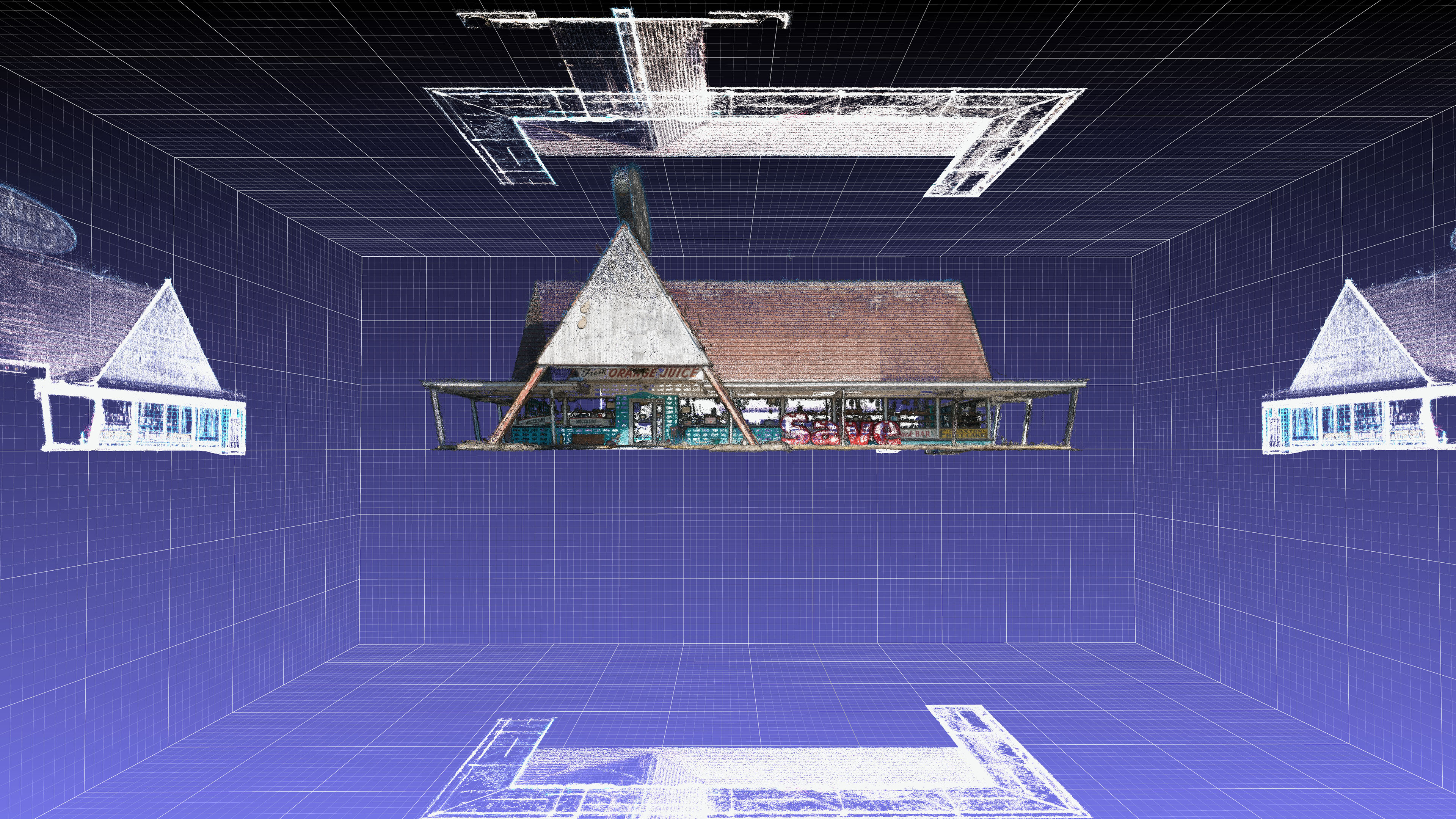
Video Art: Advanced Projects
Experimental Cinema
art with moving images
Years taught: Fall 2013-2018 (as Digital Media Workshop), Spring 2022 - 2024
[background: The Flavor Genome, 2016, by Anicka Yi - segment]
- UF Catalog
Focuses on the completion of larger scale student-directed projects with a special emphasis on pre-production planning and advanced editing techniques.
- Course Description
ART 4630C/5930C Video Art: Advanced Projects - Experimental Cinema engages experimental digital cinematography. What happens after video art? What is post-cinema? How does the advent of the discrete cinematic image alter previous notions of filmic space, time and materiality? Or does it? Using a practice-based approach we will explore these topics using the tools of Hollywood cinema.
Advances in computing are fundamentally altering our relationship with the moving image. Traditional techniques of meaning-making are being re-envisioned or re-invented providing the savvy artist with exciting opportunities to push boundaries. Experimental Cinema is an advanced motion image workshop. Students will work independently or in teams on projects that arise from their research interests, utilizing a broadly defined interpretation of experimental cinema. The course will introduce students to the RED Digital Still and Motion Camera (DSMC) system and a production workflow that emerges from Hollywood film. Our goal will not be to replicate the narrative film but to imagine how we might work experimentally. Students will learn how to motion track and composite computer graphics with live-action. Students will be encouraged to experiment with hybrid, converging technologies from video gaming and artificial intelligence. As an advanced production studio, this course is for artists excited to transgress disciplinary boundaries and produce work that might constitute an alternative cinema. We will screen historical and contemporary experimental video and film. Sample project ideas include but are not limited to: installation, short films, networked experiences, spatialized audio, place visualization, data visualization, and more. Experience with 3D modeling and coding is recommended, but not required.
As a Senior-level and Graduate-level course, you develop your own project ideas (with our help). Your primary task is to challenge your own abilities and push the boundaries of your current knowledge.
- Course Details
Credits: 3; Must be BFA Art or BA Art or BFA Graphic Design major and must have passed sophomore portfolio review.
Jack Stenner, Ph.D Associate Professor, Art + Technology Office: FAC 304 Office Hours: Th 2:45pm - 3:45pm, prefer appt via email 352.213.0997 stenner@ufl.edu Undergraduate: ART 4630C Section C302 Graduate: ART 5950C Section VIDE Class: PHYSICAL - Fine Arts Bldg C Room 302 Time: T/Th 8:30am - 11:30pm Website: http://jackstenner.com/teaching/experimental-cinema Listserv: Class contact will be made UF email and via Discord (evite to be provided).
- LearningThings you might learn/explore:
- Experimental imagery production
- Experimental video
- Motion compositing
- Camera Tracking
- RAW image production
- Cinematic lighting and shooting techniques
- Appropriate use of lens for cinema
- 3D compositing techniques
- and more....
Tools you might use to enable the list above:- REDCine-X Pro, FCP-X, Nuke, Resolve
- Maya, VRay, Deadline
- Syntheyes
- HDR Spherical with Canon 5D, Nodal Ninja, PT GUI Pro.
- AI techniques using PyTorch, TensorFlow
- Diorama construction and filming
- and more....
Objectives
Over the course of the semester, the goal is to help you develop your art practice in the following ways:
Context
Learn the history and material basis of Experimental Cinema.
Synthesis
Learn the appropriate integration of digital processes.
Criticality
Engage meaningful discussion and develop criticality.
Awareness
Gain an awareness of related work in the field.
Communicate
Propose ideas in a way that clearly demonstrates intent.
FUN
Have FUN!
- Attendance
Requirements for class attendance and make-up exams, assignments, and other work in this course are consistent with university policies that can be found at:
https://catalog.ufl.edu/ugrad/current/regulations/info/attendance.aspx.This is a heavily studio-based course so physical attendance is necessary.
- Grades
Grades will be based 90% on projects, reviews, and class assignments. 10% will be based on class participation. See below for the breakdown. Participation means you are expected to constructively criticize your peers and participate in class discussions. Failure to do so will impact your participation grade.
Detailed, specific info on grades and grading can be found at:
https://catalog.ufl.edu/UGRD/academic-regulations/grades-grading-policies/Notwithstanding the description of grades above, generally, grades are conceived in this way:
A(Excellent) Student’s work is of exceptional quality and the solutions to problems show a depth of understanding of the program requirements. Project is fully developed and presented well both orally and graphically. Student has developed a strong and appropriate concept that clearly enhances the overall solution. The full potential of the problem has been realized and demonstrated.
B(Good) Student’s work shows above average understanding and clear potential. All program requirements are fulfilled and clearly and concisely presented.
C(Fair) Student’s work meets minimum objectives of course and solves major problem requirements. Work shows normal understanding and effort. Quality of project as well as the development of knowledge and skills is average.
D(Poor) Student’s work shows limited understanding and/or effort. Minimum problem requirements have not been met. Quality of project or performance as well as development of knowledge and skills is below average.
F(Failure) Student’s work is unresolved, incomplete and/or unclear. Minimum course objectives or project requirements are not met, and student’s work shows lack of understanding and/or effort. Quality of project or performance is not acceptable.
Instructor’s evaluation of student’s interest, motivation, attendance, proficiency and overall development or improvement during the semester will be taken into consideration in determining the final course grade. This syllabus is subject to refinement and development throughout the semester based on feedback and class interaction. Policies and grading criteria are absolute and will not change. Any substantial changes will be discussed with the class prior to implementation.
Grading breakdown:
Project 1 = 20% Project 2 = 20% Project 3 = 20% Final Proposal = 5% Mid-Progress Crit = 5% Final Project = 20% Participation = 10% - Evaluation
Students are expected to provide feedback on the quality of instruction in this course by completing online evaluations at https://evaluations.ufl.edu. Evaluations are typically open during the last two or three weeks of the semester, but students will be given specific times when they are open. Summary results of these assessments are available to students at https://evaluations.ufl.edu/results/.
-
Materials/Fees
Required materials will depend on the proposed projects submitted by students. Students will design projects and set budgets based on the goals of the work. See the Schedule of Courses for any attendant fees related to this course.
-
Readings
Readings will consist of .pdfs and URLs provided to students on a case-by-case basis in response to the concepts and needs that arise from proposed projects. It is not required, but I highly recommend you read:
Williams, Evan Calder. Shard Cinema. London: Repeater Books, an imprint of Watkins Media Ltd, 2017. -
Policies
Be sure to read the University of Florida Policies regarding academic honesty, the honor code, accommodations for students with disabilities, wellness, computer use and acceptable use policy, disruptive behavior, health and safety, email and communications, and late work policy.
-
H.B. 233
On July 1, 2021 faculty were provided guidance from United Faculty of Florida as to how to respond to Governor Ron DeSantis' "Viewpoint Discrimination" Bill, otherwise known as H.B. 233. Among other things, I will be following their recommendation to reserve the right to record classes I teach. If you have any questions about this, please feel free to ask and we can discuss it further.
Projects


